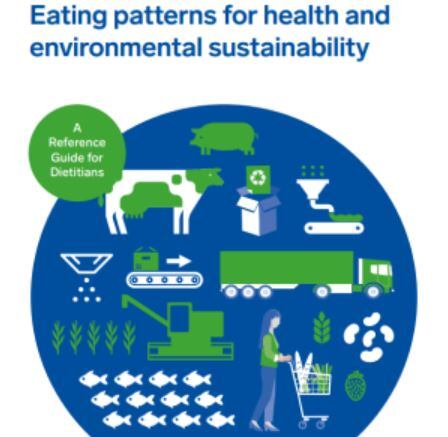The BDA launched One Blue Dot at Food Matters Live in London last week. The project is an extensive review of the evidence on dietary guidance to promote eating habits that are both healthy and sustainable. It aims to demonstrate to nutrition experts how people can make “essential changes” for the planet and the nation’s health.
According to the BDA, dietitians “know all too well” how poor eating habits affect health. Current eating patters characterised by low intakes of fibre, fruit, vegetables and essential micronutrients compete with overconsumption of energy saturated fats and sugars to undermine public health
The BDA hopes to leverage One Blue Dot to highlight the environmental impact of the food system. Food production currently contributes up to 30% of the UK’s greenhouse gas emissions and farming is the leading cause of biodiversity loss.
“The work has been groundbreaking internationally in collating the latest science, making recommendations and creating tools for dietitians and other health professionals and influencers to insue that dietary guidance and advice is synonymous with health and sustainable eating for all sectors, groups and individuals,” Tanya Haffner director of public health and nutrition affairs at Nutrilicious told FoodNavigator.
Haffner, who was part of the BDA working group, said it is hoped the One Blue Dot reference guide will become an “essential read” for everyone involved in food provision.
“It is accepted that our eating habits are having an adverse impact on the environment – we are endangering the future of our planet with how we feed ourselves and its time to take radical action,” she suggested.
‘Common and clear threads’
Haffner said that linking the challenges around sustainable and healthy eating was a challenging task. “It is a hugely complex, rapidly developing area of science and research. We still don’t have all the answers and it will be important to review all the data carefully and regularly by appropriate experts, which the BDA are committed to doing.”
Haffner said the “extensive” review of literature has taken into account the nutrition of all groups, including vulnerable groups. “Despite the complexity there are common and clear threads for action in terms of how we should be eating – actions for everyone that involve small changes but big results for both health and planet.”
The One Blue Dot 9 point plan
1 – Reduce consumption of red and processed meat to 70g per person per day.
2 – Prioritising plant proteins such as beans, nuts, soya and tofu.
3 – Consume fish from sustainable sources.
4 – Moderate dairy consumption and use fortified alternatives where needed.
5 – Focus on wholegrain starchy foods.
6 – Opt for seasonal, locally sourced fruits and vegetables.
7 – Reduce overall consumption of high sugar, salt and fat foods.
8 – Make tap water and unsweetened tea or coffee the choice for “healthy hydration”.
9 – Reduce food waste of perishable items by choosing tinned or frozen options alongside seasonal produce.
Influencing ‘every aspect’ of nutrition care
The BDA has already undertaken some baseline data amongst the nutrition profession to gauge their knowledge of and interest in promoting diets that are both healthy and sustainable. This will be re-evaluated after the launch stage to measure how much impact the One Blue Dot campaign is having.
According to Haffner, the ongoing project has the potential to grow “exponentially” over a period of years. “[One Blue Dot has the potential] to infiltrate every aspect of dietetic and nutrition care communications,” she predicted.




